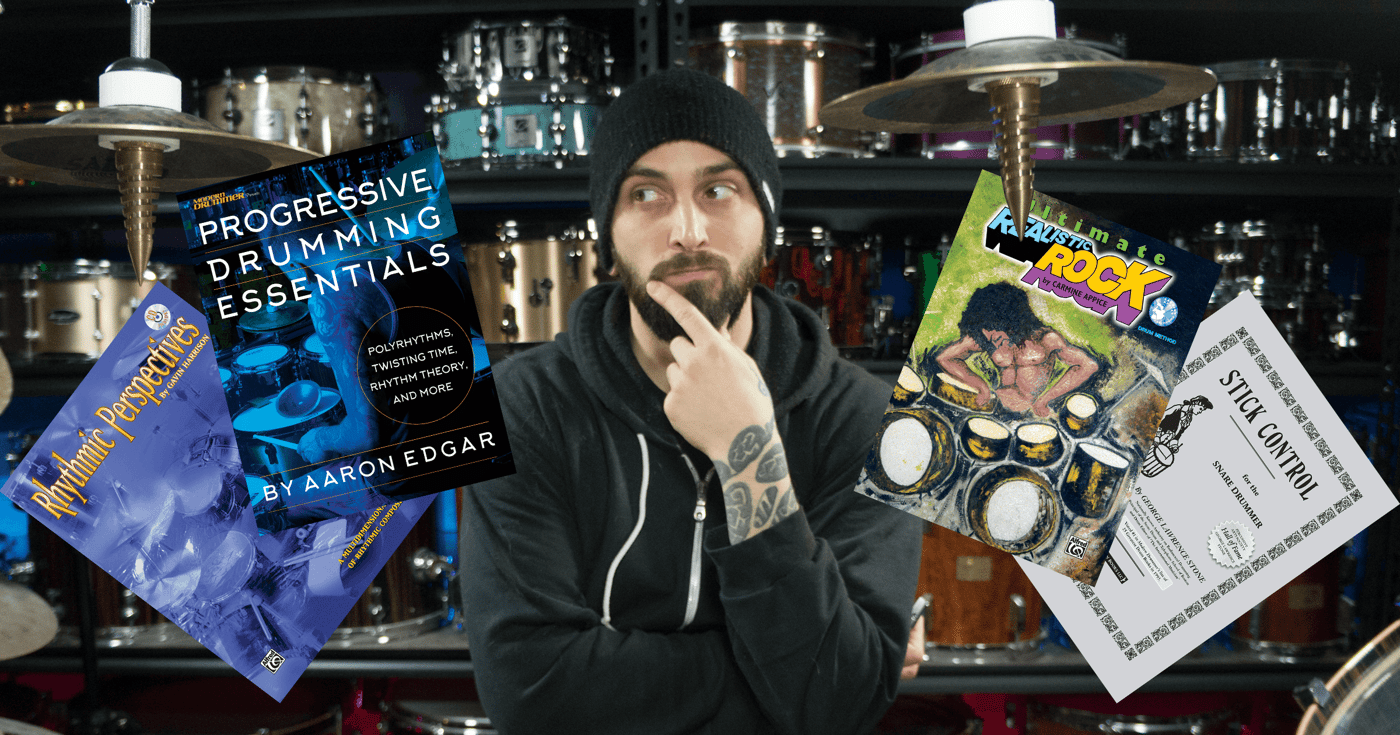
The blunt reality of playing the drums is that you’ll never master it all 100%. You could practice 12 hours a day, seven days a week for decades and still feel like there’s an insurmountable amount of material left to conquer. This concept can be depressing for people who feel compelled to ‘complete’ things and liberating for those willing to accept it. There is no ‘completing’ drums; you’ll never master everything.
A lot of people interpret that idea as a reason to double-down on their style of choice, the rock drummer agonizing over his or her ability to do an excellent AC/DC impression, or metal drummers who’ll eat, sleep, breathe and exclusively practice metal. These approaches can result in incredibly solid drummers within their genre, with an unfortunate side effect of sounding one-dimensional and without much personality.
If you’re only able to do what’s necessary for the job, you’ll have trouble in situations where something more, or even just different, is asked of you. Branching into styles beyond your ‘faves’ absorbs different ideas, feels and licks into your playing; they essentially become a part of your sound, which is something you can bring back with you into your favored styles. An excellent example of stylistic blending is Martin López on some of the mid-period Opeth albums, bringing a Latin flavor to Opeth’s Progressive Death Metal sound.
If you’re only able to do what’s necessary for the job, you’ll have trouble in situations where something more, or even just different, is asked of you.
Trying different musical styles is a great way to start expanding your horizons. Once you get the general feels and patterns of a new style/genre down, you’ll quickly learn that many of the independence and physical aspects directly relate to what you already know. Beyond styles, you can try to master rhythm directly by taking on all of the subdivisions in-depth, plus polyrhythms and other advanced rhythmic concepts. You can (and I find this to be the case often) stumble upon unexpectedly exciting ideas, rhythms and phrases when you explore unconventional/unrelated material.
Another massive advantage of expanding your horizons is that it builds headroom within your abilities. When I first started to gig professionally, I vividly remember having a feeling of musical invincibility. For myself, at no point in time did I ever feel the need to ‘keep it practical.’ If anything, I felt annoyed at the idea of exclusive practicality, instead favoring anything I felt was challenging or rhythmically unique into my practice time. When it came time to start gigging and learning songs assigned to me by bandleaders or songwriters, it was immediately apparent that nothing I was being asked to learn required even an ounce of thought beyond writing an accurate chart. When you work toward proficiency beyond anything you’d reasonably be asked to do, the result is a feeling of effortlessness that allows you to focus on feel, dynamics, and connecting with the other members in your group rather than struggling to overcome musical challenges on stage. It’s a beautiful and liberating feeling!
Another massive advantage of expanding your horizons is that it builds headroom within your abilities.
Gavin Harrison put it excellently in the form of a metaphor at the end of his second book, Rhythmic Perspectives: “It’s like driving down the road in a small car (say, a Mini). When you reach 70 mph, you are getting close to the limits of that engine, and it feels as if the car is really going fast even though you are holding a steady 70 mph. It’s taking all of your strength and concentration just to hold the thing on the road. If you’re cruising down the road in a big car (like a Jaguar, for instance), 70 mph is absolutely no trouble at all. In fact, it doesn’t even feel as if you’re going very fast. You know the car is capable of doing a much higher speed, and you know that it’s there if you need it. You feel more comfortable and confident while your mind is free to think of other things, such as where you are heading (or how much extra this Jag is costing you in insurance).”
This concept extends beyond the instrument as well. Many people find that exploring hobbies and interests outside of music adds a richness and expanded realm of experience into your art in subtle (and sometimes not-so-subtle!) ways. The more well-rounded you are as a person, you’ll find your voice on the instrument takes on a character that is uniquely your own!
Aaron Edgar is a dynamic and innovative drummer renowned for his technical prowess and creative approach. With a career spanning over a quarter century, he has significantly impacted the drumming community as an educator, performer, and author. His work with the progressive metal band Third Ion showcases his ability to blend intricate rhythms with powerful grooves. Aaron's contributions to drumming education are extensive, including over a dozen years at Drumeo, his role as a columnist for Modern Drummer, and his instructional book "Progressive Drumming Essentials" Additionally, he served as Editor In Chief of Drums Etc. magazine and is a sought-after clinician worldwide. Aaron's passion and dedication continue to inspire drummers of all levels, solidifying his place as a leading figure in modern drumming.


By signing up you’ll also receive our ongoing free lessons and special offers. Don’t worry, we value your privacy and you can unsubscribe at any time.
We use cookies for traffic data and advertising. Cookie Policy »